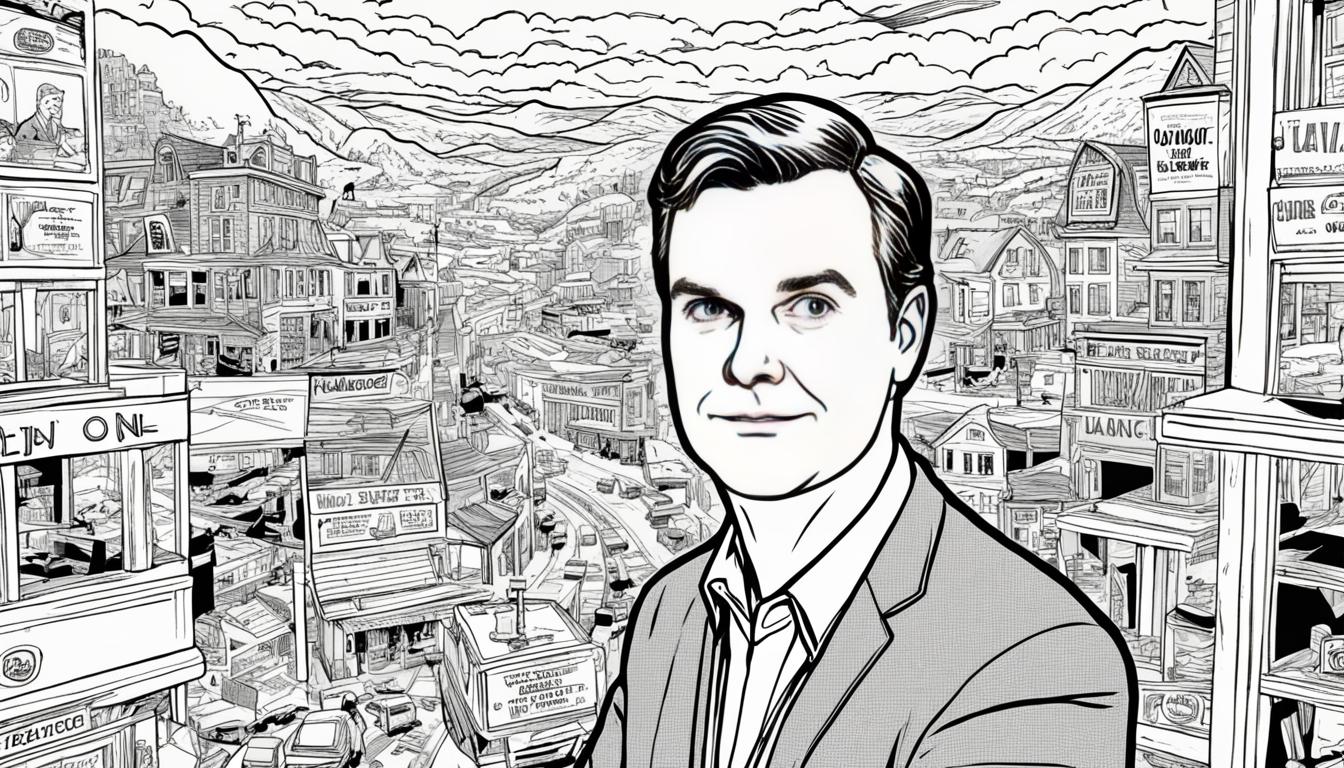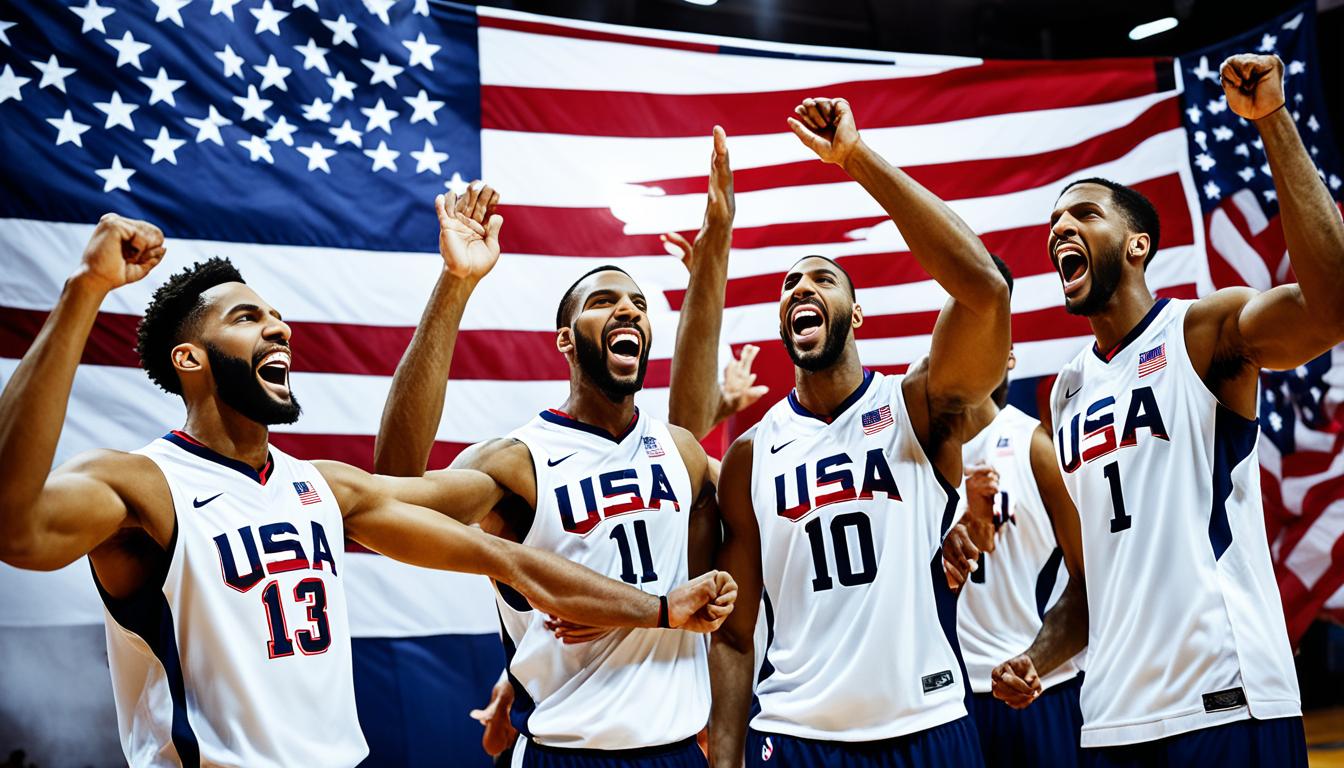In the realm of politics, peculiar occurrences often catch our eye. J.D. Vance, the author of “Hillbilly Elegy,” is a perfect illustration. He transitioned from a humble existence to gaining recognition in the political arena. This transformation has sparked a bizarre rumor involving an unexpected encounter with a couch.
Though it sounds bizarre, this rumor caught everyone’s eye. It even led to many memes. But this weird tale is more than just random gossip. It shows how a story, no matter how weird, becomes part of someone’s public image.
Key Takeaways
- J.D. Vance’s memoir ‘Hillbilly Elegy’ does not include any reference to a couch-related affair.
- The term “couch” appears in the book, but in completely different contexts.
- Fact-checks debunk rumors claiming Vance discussed inappropriate encounters.
- Social media has played a significant role in propagating the false story.
- The absurdity of the rumor highlights the odd intersections of personal and political narratives.
Introduction to J.D. Vance’s Eccentricities
J.D. Vance’s journey showcases a big change influenced by his unique traits. His tough childhood in Appalachian Ohio shapes both his identity and how people see him politically. He shows two sides: one sensitive and thoughtful, the other more bold, fitting today’s conservative scene.
Vance keeps changing, making people wonder why. He mirrors challenges many face, making a deep connection with voters. He connects different worlds, earning both empathy and doubts. These shifts highlight his struggle to keep a consistent identity in a fast-changing political landscape.
The Beard and the Image Change
J.D. Vance’s look has changed a lot over time, showing how his public image has evolved. He used to look more youthful and less rugged. Now, Vance sports a thick beard. This new rugged look aligns with what some call “severe masculinism.”
Figures like Donald Trump Jr. also follow this trend. It shows a shift towards values that emphasize being tough and assertive. These traits are often seen in today’s conservative circles.
Transformation from Baby Fat to Severe Masculinism
Vance’s new look matches his political goals. He moved from a softer image to a more masculine, tough appearance. His beard is a key part of this change. It boosts his image, making him seem strong and decisive.
This look is not just for show. It helps him connect with people in a certain way during his campaigns. He communicates strength, yet remains approachable.
Public Perception of Vance’s Evolving Aesthetic
People and political experts have mixed feelings about Vance’s new style. Some see his rugged look as real and relatable. It helps him bond with voters during campaigns, where he often wears casual clothes and has a Big Gulp cup.
Others think Vance is just trying to fit a political mold, losing his authenticity. They see his transformation as a move to gain political favor.
This contrast in views makes Vance’s changing image a topic of interest in American political discussions.
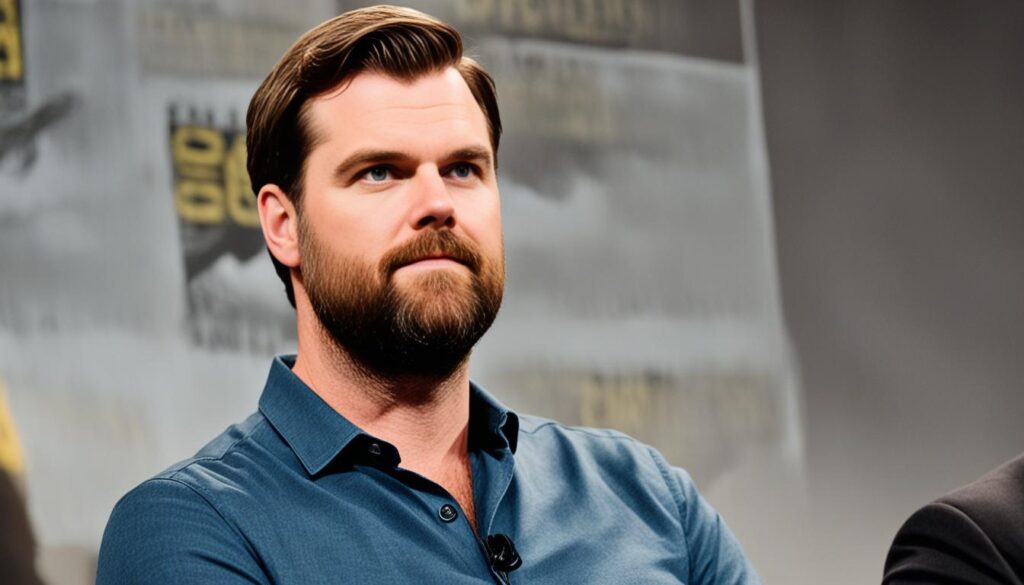
The Backstory of Hillbilly Elegy
The release of Hillbilly Elegy changed J.D. Vance’s public image a lot. This memoir talks about Vance’s tough childhood. It reached a wide audience interested in the life of the white working class. The story made him well-known, especially after the 2016 election. It sold over three million copies. The movie by Ron Howard made him even more famous.
Impact of the Memoir on Vance’s Public Image
Hillbilly Elegy changed how people saw Vance. It made him well-known in politics. His real-life stories of rural Americans’ struggles caught the media’s attention. People wanted to hear his views on big issues. This visibility made him an important voice for a group often not understood well.
Controversies Surrounding the Book’s Narrative
The book’s critics have been vocal about its controversies. Some say Vance’s view of Appalachian life is too simple. It overlooks the real, complex problems there. The book started debates on class, race, and identity in America. Despite being popular, these debates show how divided people are. They either strongly agree or disagree with what he says.
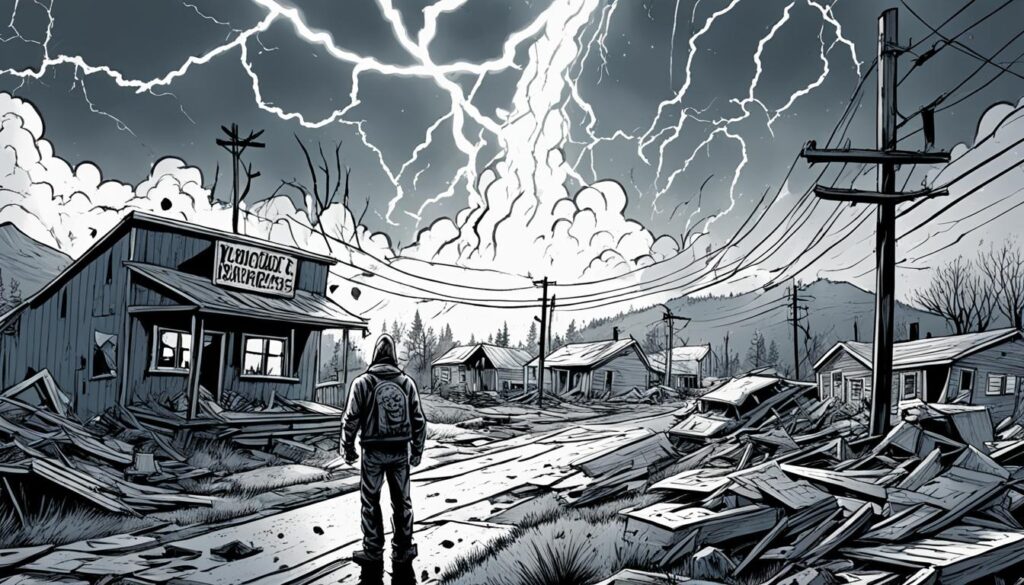
| Aspect | Details |
|---|---|
| Sales Figures | Over 3 million copies sold |
| Film Adaptation | Directed by Ron Howard, increased national awareness |
| Public Perception | Transformed into a media figure for rural issues |
| Criticism | Portrayed as risky stereotyping of Appalachian culture |
| Key Discussions | Class, race, and identity implications debated actively |
J.D. Vance Didn’t Have Sex with a Couch. But He’s Still Extremely Weird.
The couch rumor about J.D. Vance is wild. It shows how hard the media scrutiny hits him in politics. The rumor came from a tweet misusing his “Hillbilly Elegy” memoir. It’s funny but also shows how dirty politics can get with personal attacks.
Breaking Down the Absurd Rumor
Vance’s public image is affected by his bold statements. The couch rumor came from his book, pages 179 to 181, and blew up on TikTok. Memes and talks grew, focusing on his vice-presidential nomination prospects. The Associated Press checked it and said, “No, JD Vance did not have sex with a couch.”
Conflicting Views on His Personal Life and Public Persona
People are torn about J.D. Vance’s personal life. Some relate to his struggles and what he’s given up. But others call him a hypocrite for leaving his roots and chasing politics. His ties with Peter Thiel and the “New Right” make things more complex. His stances on issues keep adding to the debate about him.
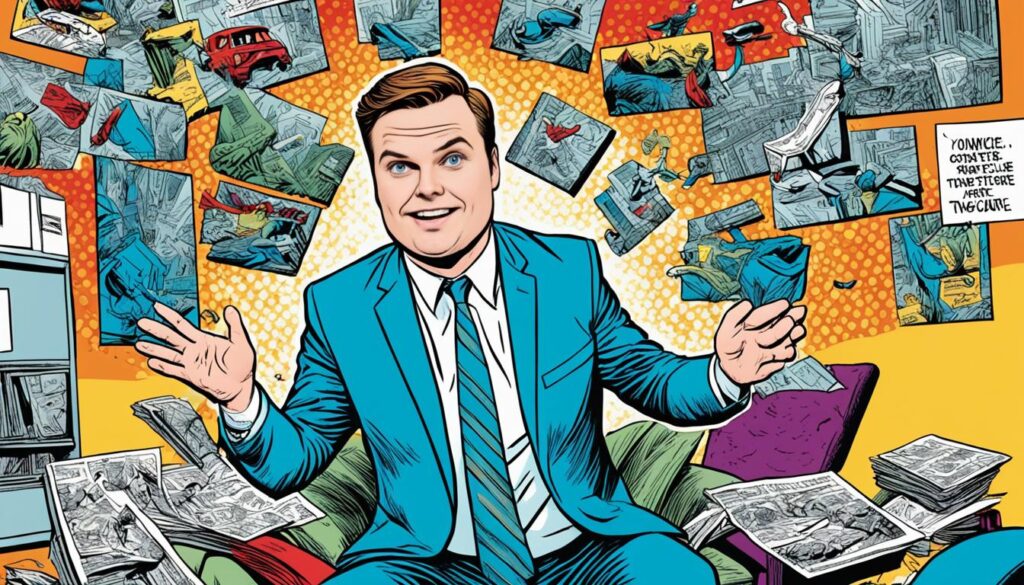
The election talks highlight Vance’s quirks as key campaign issues. His complex personal life and public image attract different viewers.
| Aspect | Description |
|---|---|
| Couch Rumor Origin | Tweeter rickrudescalves sparked the rumor on July 15. |
| Public Reaction | Wide-ranging responses from laughter to incredulity. |
| Media Debunking | Associated Press published a fact-check citing no evidence in “Hillbilly Elegy”. |
| Impact on Campaign | Rumor serves as a distraction in Vance’s political narrative. |
| Number of Mentions | The term “couch” appears 10 times in Vance’s book. |
Political Evolution and Statement Shifts
J.D. Vance’s journey in politics is a study of change within American conservatism. He first disagreed with Donald Trump, showing views that matched anti-Trump feelings among some voters. This offered a different picture within the GOP then, as most were supporting Trump.
As he moved closer to GOP’s main beliefs, Vance added popular themes that spoke to left-behind voters.
From Anti-Trump to GOP Candidate
In recent years, J.D. Vance has seen both support and criticism for his changing views. He once questioned Trump’s values but now agrees with the Republican Party. This shows a careful change in tune with the political scene’s shifts.
Vance now mixes previous criticisms with support for GOP’s key ideas, focusing on working-class conservatism and nationalism. This change makes Vance a figure who can voice the needs and unrest of certain American voters.
Public Reception of Vance’s Political Positioning
People have mixed feelings about Vance’s political switch. Some cheer his energetic support of conservative populism, aiming to reach working-class folks. Yet, some see his change as seeking personal gain, worried it might weaken traditional conservative principles.
This situation shows the hurdles political figures face in a party now closely tied to Trump. As J.D. Vance shares his plans for the U.S., how voters react will greatly influence his path in the GOP.
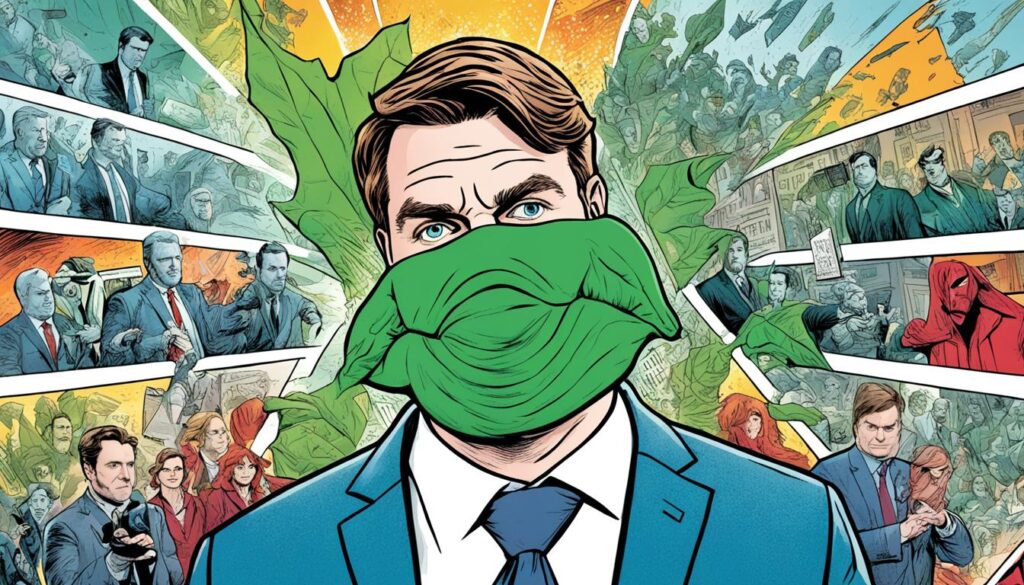
The Cultural and Economic Narrative
J.D. Vance deeply connects with working-class voters by voicing their economic struggles. His book, “Hillbilly Elegy,” reflects the cultural identity of these communities, showing their political neglect. This bond boosts Vance’s appeal as he shares relatable personal experiences.
Understanding Vance’s Appeal Among Working-Class Voters
Vance’s memoir gives a voice to working-class Americans. He talks about their feelings of disillusionment, especially in areas hurt by industry loss. His stories of personal and societal struggles appeal directly to those feeling overlooked by politics.
Exploring Post-Liberalism and National Conservatism
Vance is key to understanding post-liberalism, which combines cultural conservatism with economic populism. This viewpoint is critical of elites and addresses concerns about trade and immigration. Vance aligns with national conservatism, positioning himself as vital in this ideology. He critiques the liberal order to rally support, particularly from those who see their struggles in his.
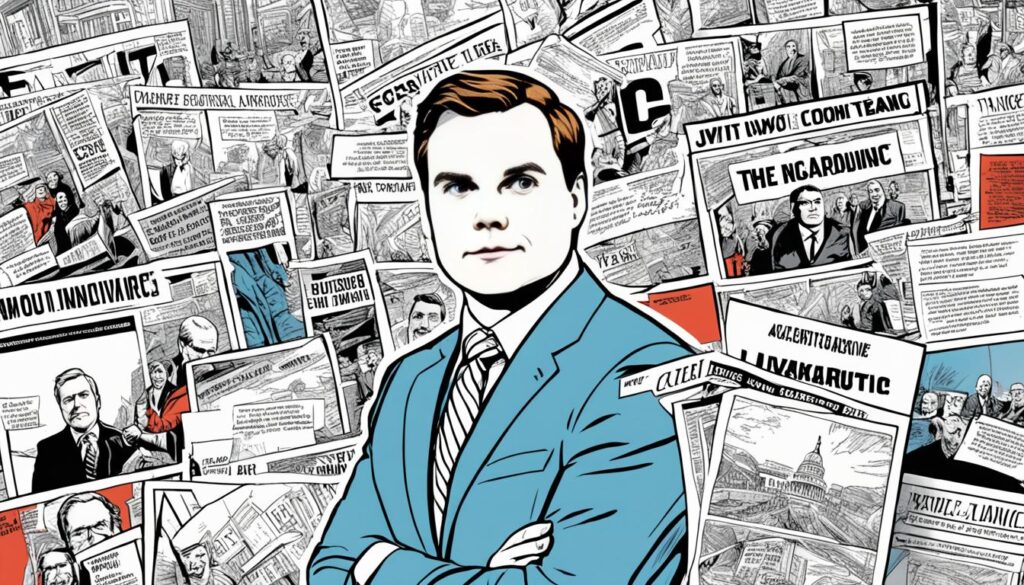
| Aspect | Description |
|---|---|
| Working-Class Voters | Individuals seeking representation and understanding of their economic and social challenges. |
| Cultural Identity | Emerging narrative reflecting the reality and experiences of non-coastal, working-class Americans. |
| Post-Liberalism | Political ideology merging skepticism towards elites with economic populism. |
| National Conservatism | A movement placing emphasis on nationalism and critiquing traditional liberal values. |
Conclusion
J.D. Vance’s life moves from being a writer to a major political person. This change shows a complex journey through U.S. culture and politics. His public image has changed a lot, with some strange statements and actions. These make people question if he’s really who he says he is. Vance’s story touches on big issues like political splits and what it means to belong to a culture. It also looks at his somewhat different political path ahead.
As Vance goes deeper into modern politics, how people react to his words is important. He has made negative comments about Democrats and has some odd claims from his past. These reactions bring up big questions about what voters think and how they relate culturally. Political marriages between Democrats and Republicans are rare, showing deep divides. Vance’s challenge is to attract support from both sides. These issues have a big impact on how people see him.
The future of J.D. Vance in politics is not clear, just like many others caught in today’s fast-paced political scene. The attention he gets could make him more important in conservative politics. Yet, it might also lead to negative reactions from the public. Vance must find the right balance as he carves out his own place in a changing political world.
